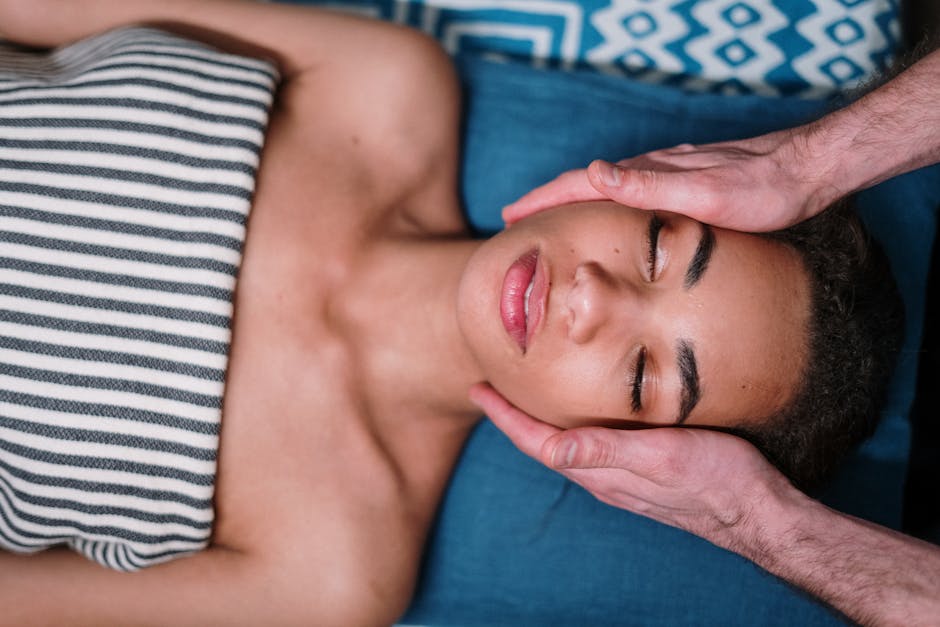Understanding Acne Scars
Acne scars are a common issue that can affect the texture and appearance of your skin. They are often a result of severe acne breakouts that damage the skin’s tissue. There are different types of acne scars, including ice pick scars, boxcar scars, and rolling scars. Each type varies in appearance and requires different treatments for improvement. Acne scars can be more challenging to treat than active acne, as they involve repairing damaged skin tissue. It’s essential to consult with a dermatologist to determine the best treatment plan for your specific type of acne scars.
What is Laser Therapy?
Laser therapy is a treatment that uses concentrated beams of light to target specific areas of the skin. It is commonly used to reduce the appearance of acne scars and promote skin healing. The laser energy stimulates the production of collagen, which helps improve skin texture and tone. Laser therapy is a non-invasive procedure that is often performed by dermatologists or skin care professionals. This treatment can be effective for various skin concerns, including acne scars, wrinkles, and pigmentation issues.
Types of Laser Therapy for Acne Scars
There are different types of laser therapy for acne scars. Here are some common ones to consider:
- Fractional Laser Therapy: This type of laser targets small areas of skin at a time, encouraging faster healing.
- Pulsed Dye Laser Therapy: This laser targets redness in acne scars, helping to reduce their appearance.
- CO2 Laser Therapy: A more intense laser treatment that removes layers of skin to improve the skin’s texture.
Each type of laser therapy works in a unique way to improve the appearance of acne scars.
Benefits of Laser Therapy
Laser therapy can effectively treat various skin concerns like acne scars, wrinkles, and sun damage. The procedure stimulates collagen production in the skin, promoting smoother and firmer skin texture. Additionally, laser therapy is non-invasive, requires minimal downtime, and can deliver noticeable results after just a few sessions.
Laser Therapy Process for Acne Scars
Laser therapy for acne scars involves using a concentrated beam of light to target the affected areas of the skin. The laser penetrates the skin’s surface to stimulate the growth of new, healthy skin cells, which can help reduce the appearance of acne scars over time. Typically, the process involves multiple sessions spaced out over a few weeks to achieve the desired results. The procedure is generally safe and effective for most people, but it’s essential to consult with a dermatologist or skincare specialist to determine if laser therapy is the right treatment option for your acne scars.
Preparing for Laser Therapy
Laser therapy for acne scars does not require extensive preparation, but there are a few things to keep in mind before your treatment session. Here are some tips to help you prepare:
- Avoid sun exposure: It is important to protect your skin from the sun before and after laser therapy. Sunburned skin can interfere with the treatment and increase the risk of complications.
- Stay hydrated: Drinking plenty of water can help your skin recover more quickly after the procedure.
- Follow your dermatologist’s instructions: Your dermatologist may provide specific guidelines on skincare products to use or avoid before your treatment.
- Inform your dermatologist about any medications: Let your dermatologist know about any medications or supplements you are taking, as some may need to be adjusted before the procedure.
- Prepare to schedule downtime: While the procedure itself may be quick, it is recommended to plan for some downtime after the treatment to allow your skin to heal properly.
Following these simple steps can help ensure a successful laser therapy session for your acne scars.
The Procedure: What to Expect
During a laser therapy session, the dermatologist will clean your skin and put goggles over your eyes to protect them from the laser. They will then use the laser on your skin, which can feel like tiny hot pricks or a rubber band snapping against your skin. The procedure might take around 30 minutes to an hour depending on the area being treated. After the treatment, your skin may feel warm and sensitive, similar to a sunburn. Redness and swelling are common immediately after the procedure, but they usually subside within a few hours to a few days. The dermatologist will provide you with post-treatment care instruction to help you heal properly.
Aftercare and Recovery
After laser therapy for acne scars, you might experience redness and swelling on the treated area, but this typically subsides within a few days. It is crucial to avoid direct sunlight and use sunscreen to protect your skin during the recovery period. Keep your skin moisturized and follow your dermatologist’s post-treatment instructions carefully to ensure the best results.
Results and Expectations
Laser therapy for acne scars can show noticeable improvements in skin texture and appearance. Many patients experience smoother skin, reduction in scar visibility, and improved overall skin tone. Results may vary, and multiple sessions may be needed to achieve optimal outcomes. It’s important to have realistic expectations and understand that complete eradication of scars may not be possible. Consulting with a dermatologist can give you a better insight into the expected results based on your specific skin condition.
Conclusion: Is Laser Therapy a Viable Solution for Acne Scars?
Laser therapy shows promise in treating acne scars, with studies indicating significant improvement in skin texture and appearance. However, it’s essential to manage your expectations as results may vary from person to person. Laser therapy is considered safe, but some individuals might experience minor side effects like redness and swelling, which usually resolve within a few days. Before opting for laser treatment, consult a dermatologist to discuss your options and determine if it’s the right choice for you.


